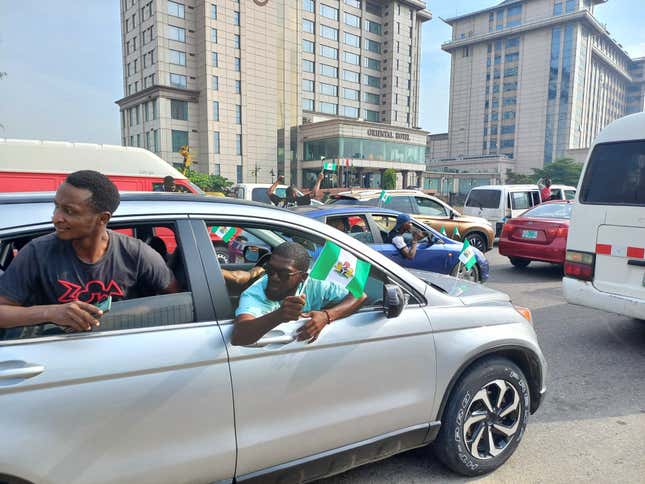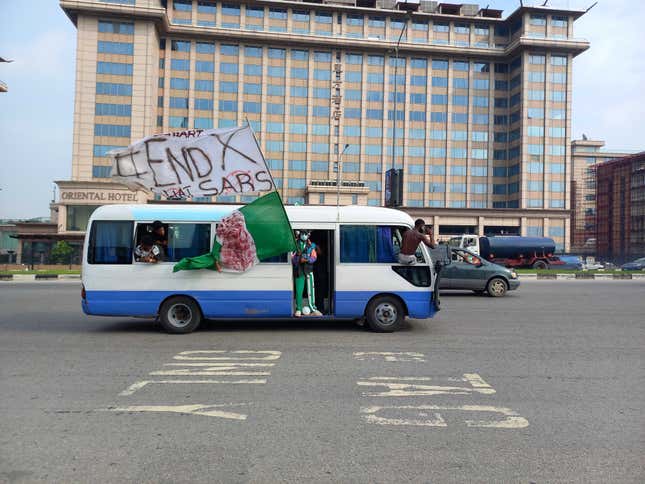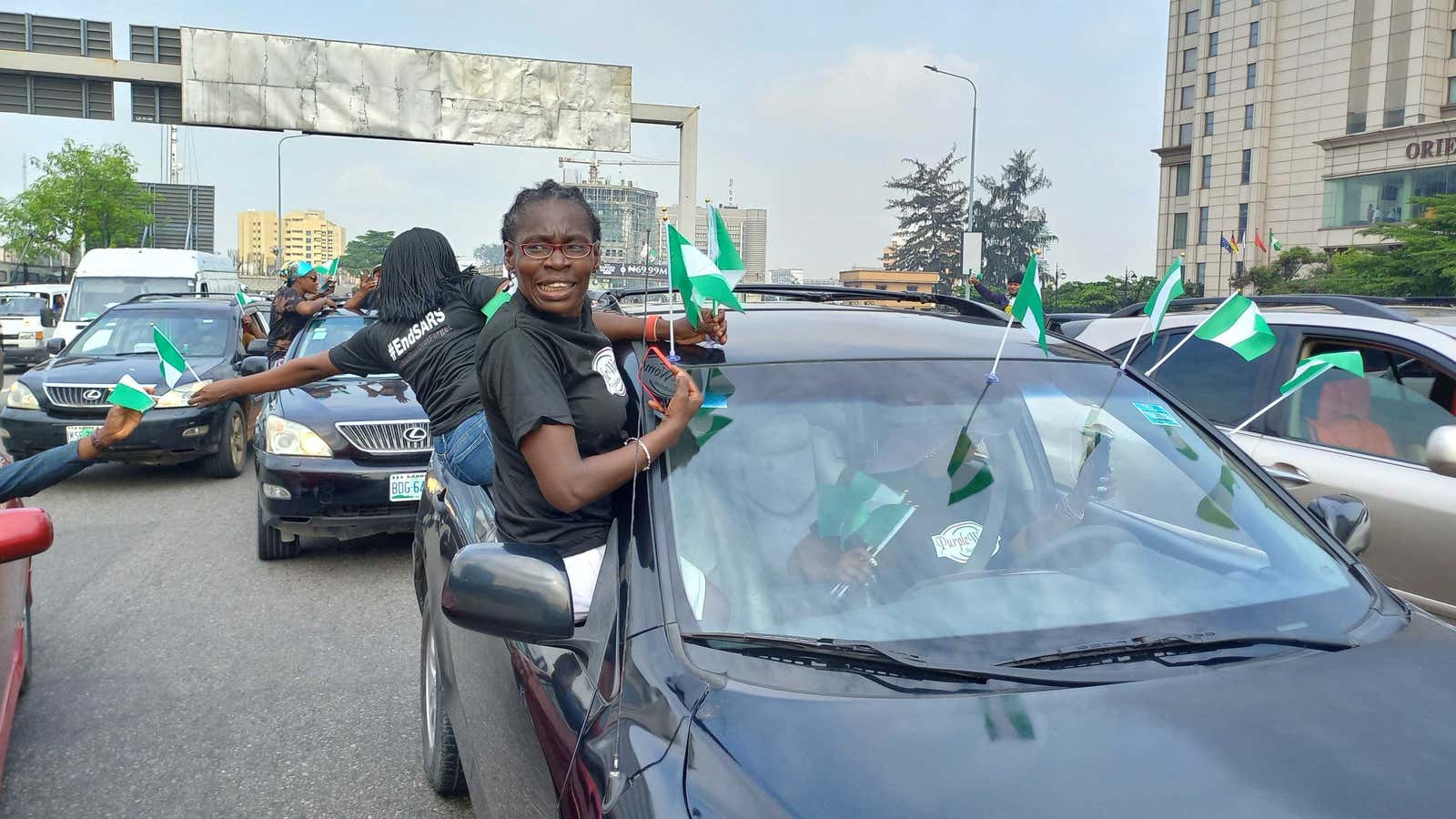Green and white flags of different sizes were fixed on buses, cars, and motorcycles as young people cheerily drove through the Lekki toll gate in Lagos, chanting “water runaway my eyes” and other popular songs used to remember the dead in Nigeria.
Hundreds turned out to memorialize Oct. 20, for the first anniversary of the Nigerian Army’s shooting of unarmed protesters during last year’s EndSARS protests. It was peaceful and colorful for the two hours it lasted up to 10am. Passers-by cheered on in solidarity, and asked to be given flags so they could join the memorial.

Soon enough, the police, acting in ways that reminded everyone of last year’s events, began firing tear gas canisters into the air an hour later to disperse an exuberant crowd that had formed, with music blaring from some speakers. Some protesters were put in black police vans and taken to unknown locations, which led some volunteers to reactivate a pro bono legal aid network that had helped free protesters last year.
But in a scene that defined the defiant mood of the memorial, one protester refused to be put in a van even after officers sprayed tear gas directly on his face after pulling him by the torso upside down. It was a real-life yet cinematic manifestation of a line in Nigeria’s national anthem: the labors of our heroes past shall never be in vain.
Nigerians refused to forget
Police departments in Lagos and other states did not want EndSARS memorials to be held, citing concerns about “mayhem” and possible breakdown of law and order. But for many Nigerians who had participated in last year’s protests, there was a duty to remember the dead.
The duty was all the more pressing because over the last 12 months, Nigerian authorities have denied that the Army killed protesters on the evening of Oct. 20 last year despite reports from organizations like Amnesty International that at least 12 were killed. Lai Mohammed, the Nigerian minister for information, published a statement tagged “Phantom Massacre at Lekki tollgate” to re-emphasize the government’s position on the one-year anniversary.
Undeterred, some of the most active participants who helped shape the mood of last year’s protests turned out for the memorial. Folarin ‘Falz’ Falana, a popular rapper, was spotted in one of the buses that conveyed people to the gate, as was Debo Adedayo, an actor and comedian. Feyikemi Abudu, who worked with the Feminist Coalition and other women to organize relief for protesters last year, was again a leading figure for the remembrance.

Adedayo, Abudu, and other young Nigerians planned the peaceful drive-through memorial, using Twitter to coordinate meetup points, and executing it on the streets. There were no clashes with law enforcement, or any of the attacks on state properties that marred parts of last year’s events.
The police’s use of tear gas may have caused a mild discomfort, but a message of defiance was passed to commemorate an unfortunate Nigerian tragedy.
Sign up to the Quartz Africa Weekly Brief here for news and analysis on African business, tech, and innovation in your inbox
